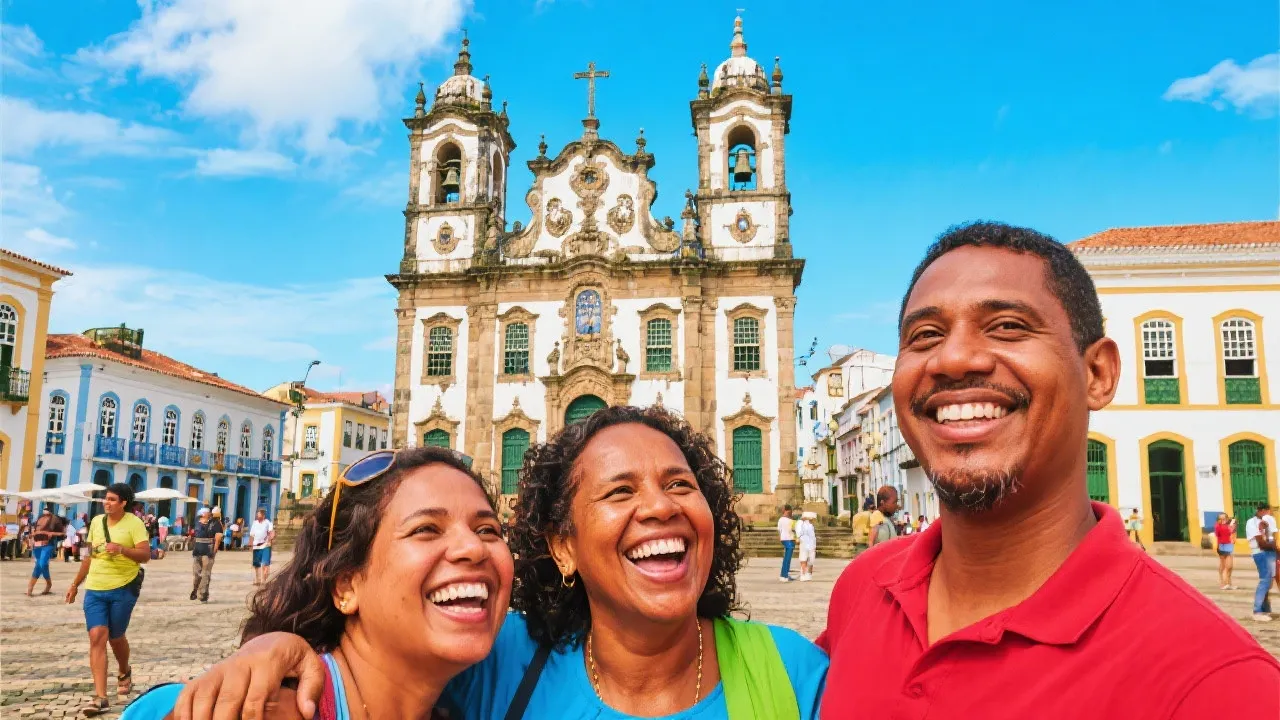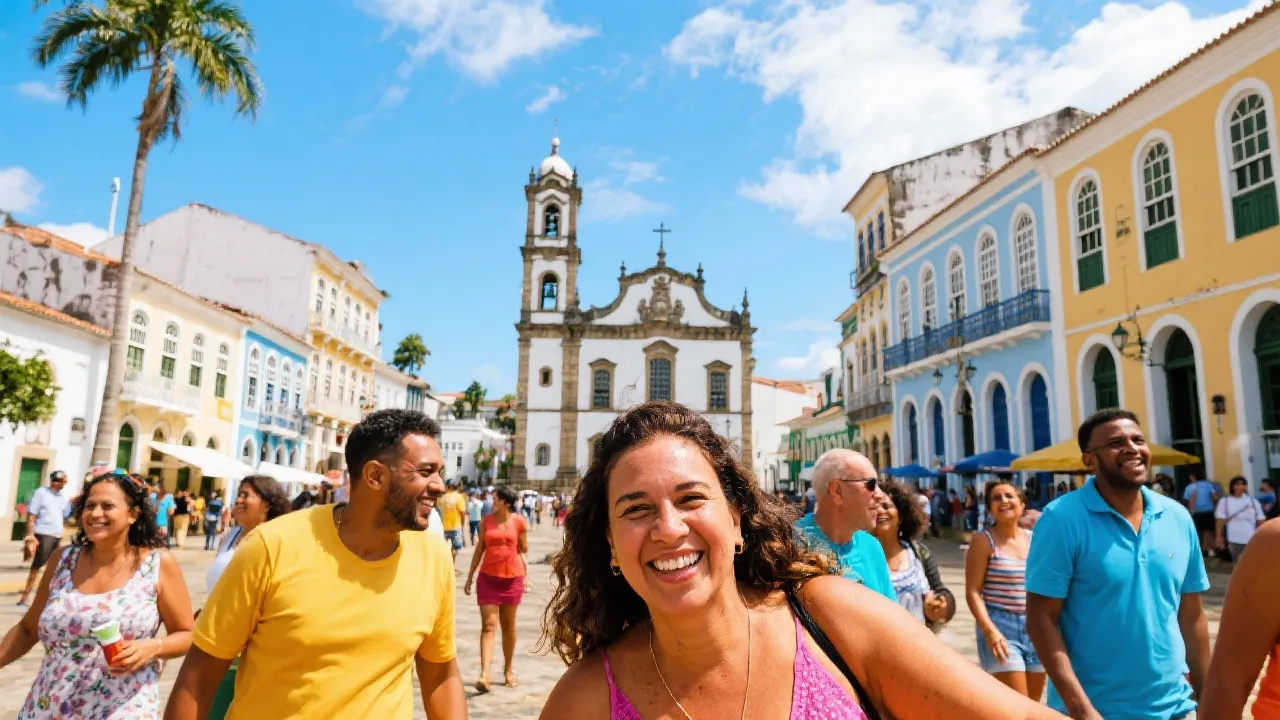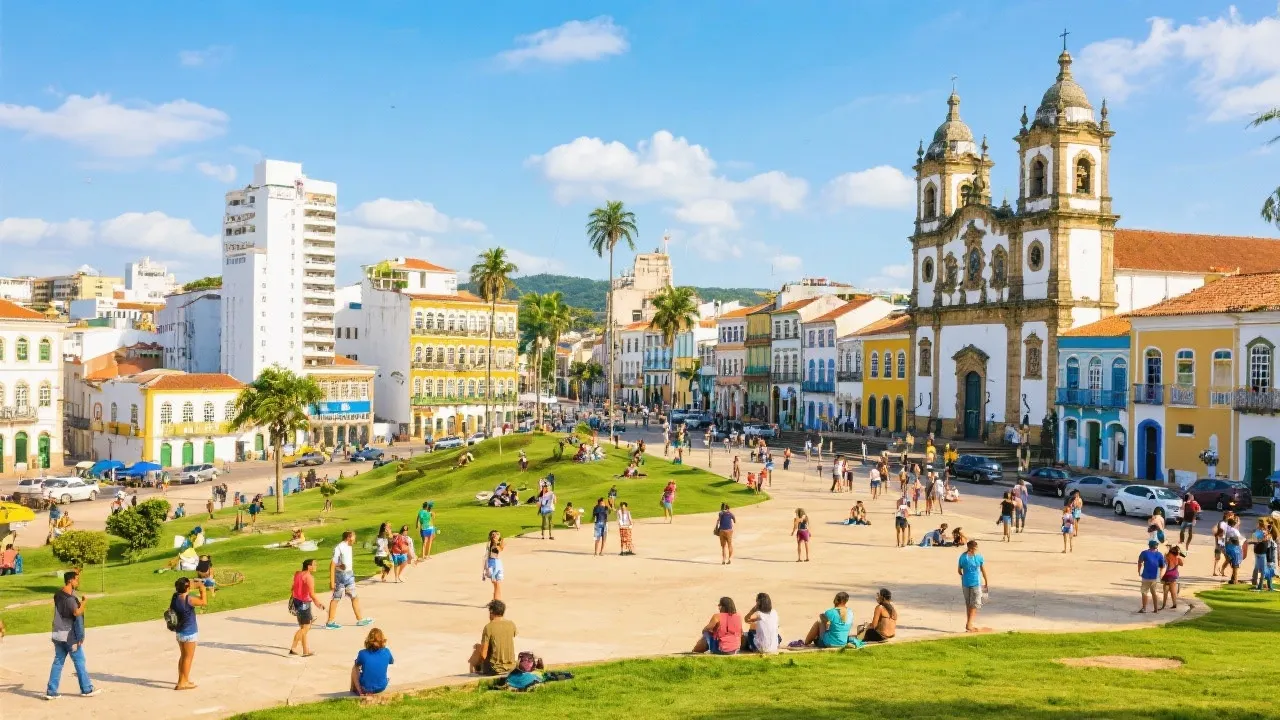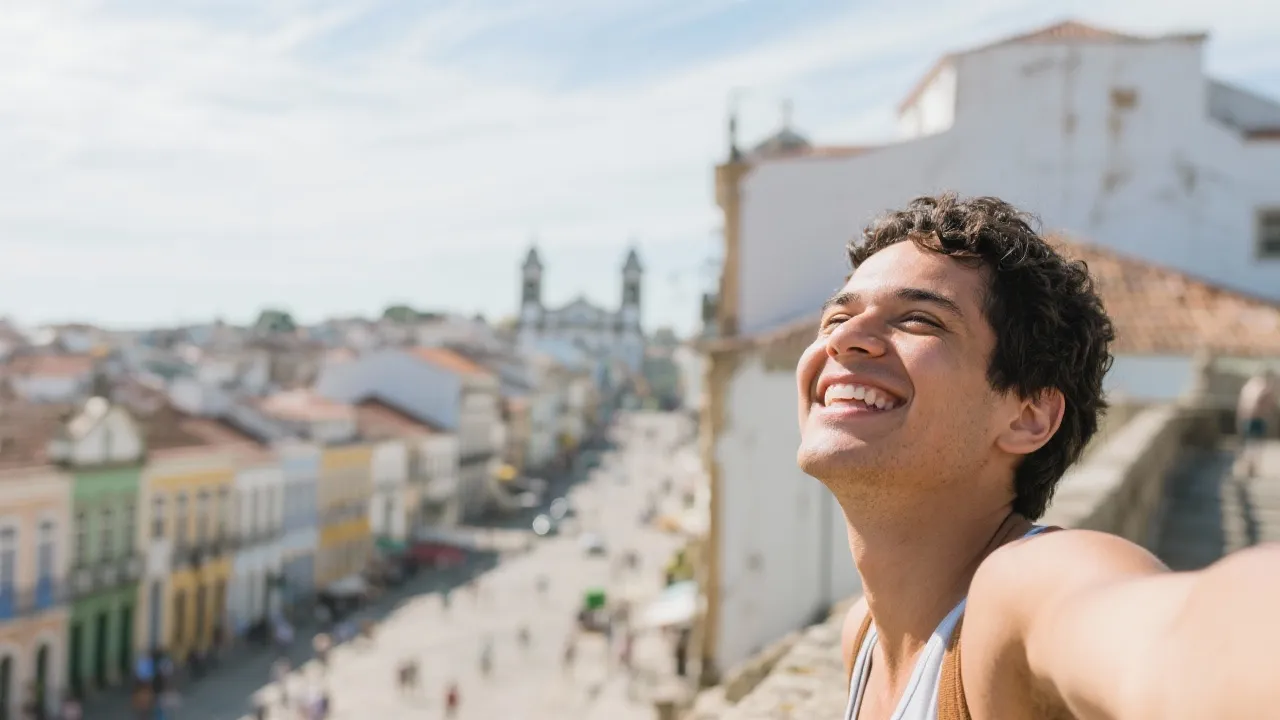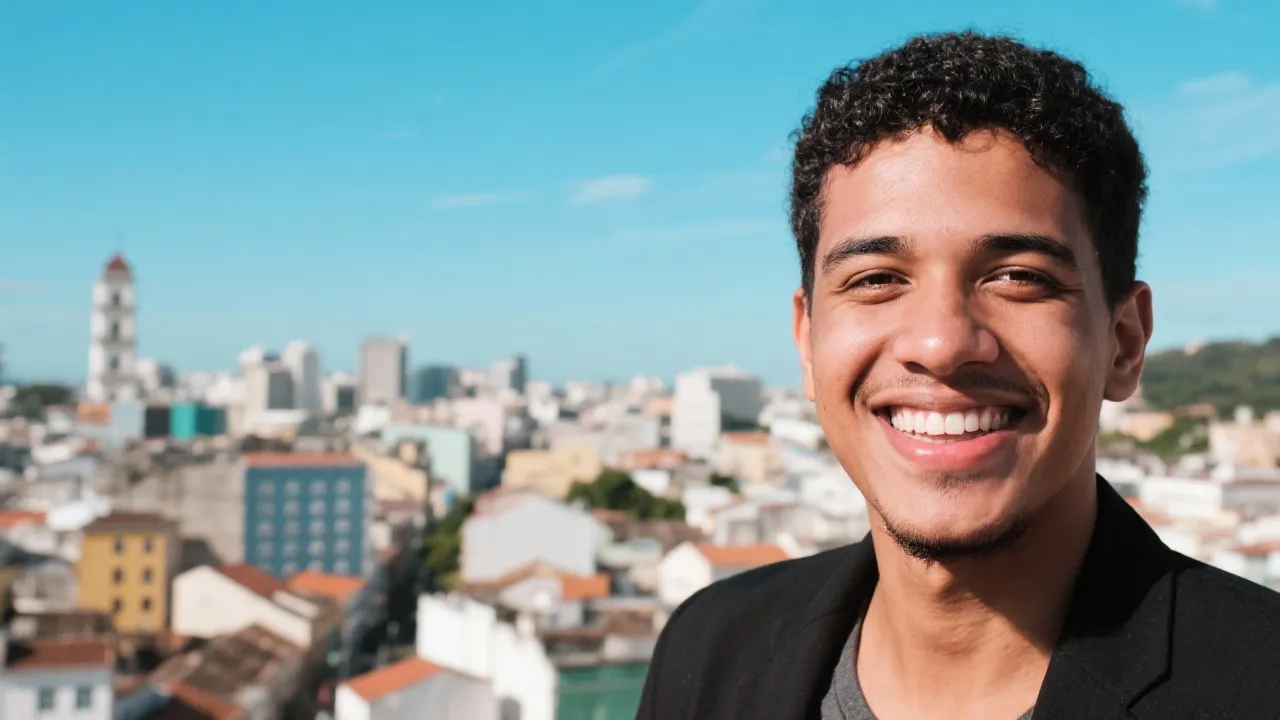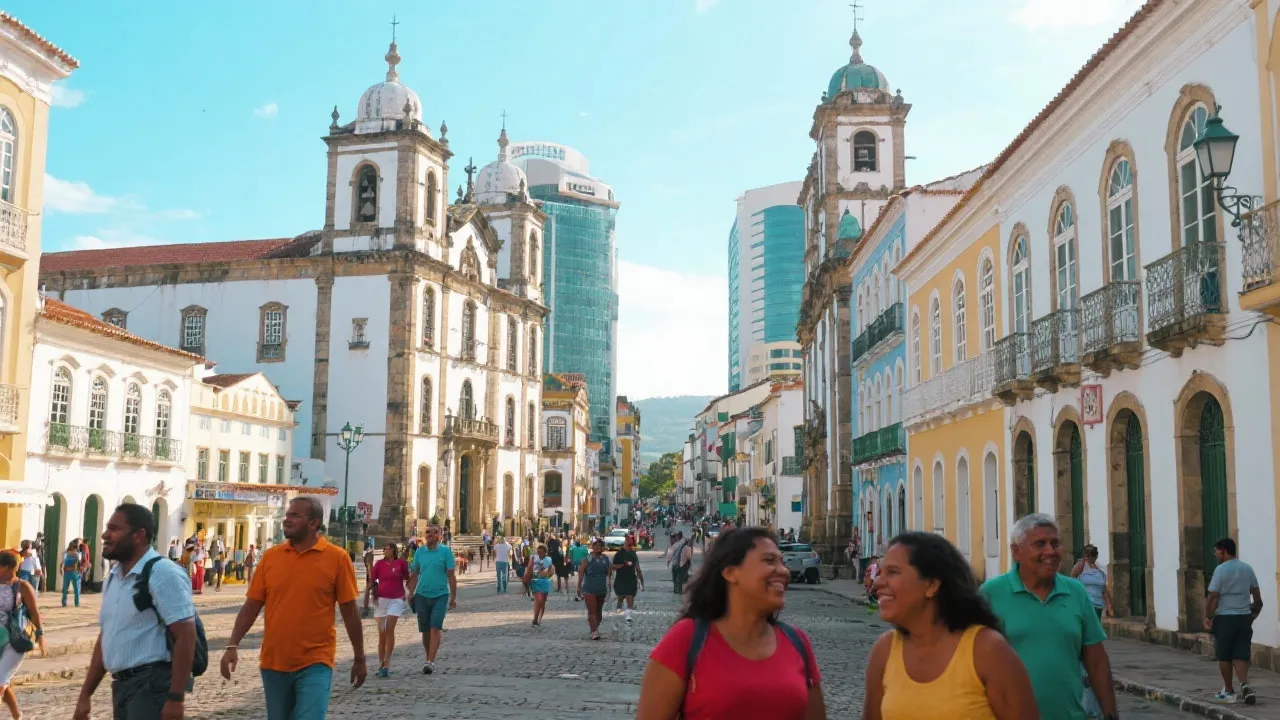Discovering the Joyful Salvador
Salvador is a vibrant city known for its exceptional culture, lively music, and colorful festivals, capturing the essence of Brazil’s rich heritage. As the capital of the state of Bahia, it's a city where smiles and energy are abundant, earning it the nickname "Sorridente Salvador." Explore this fascinating locale, teeming with historic architecture, stunning beaches, and a warm, welcoming spirit that keeps visitors enchanted.
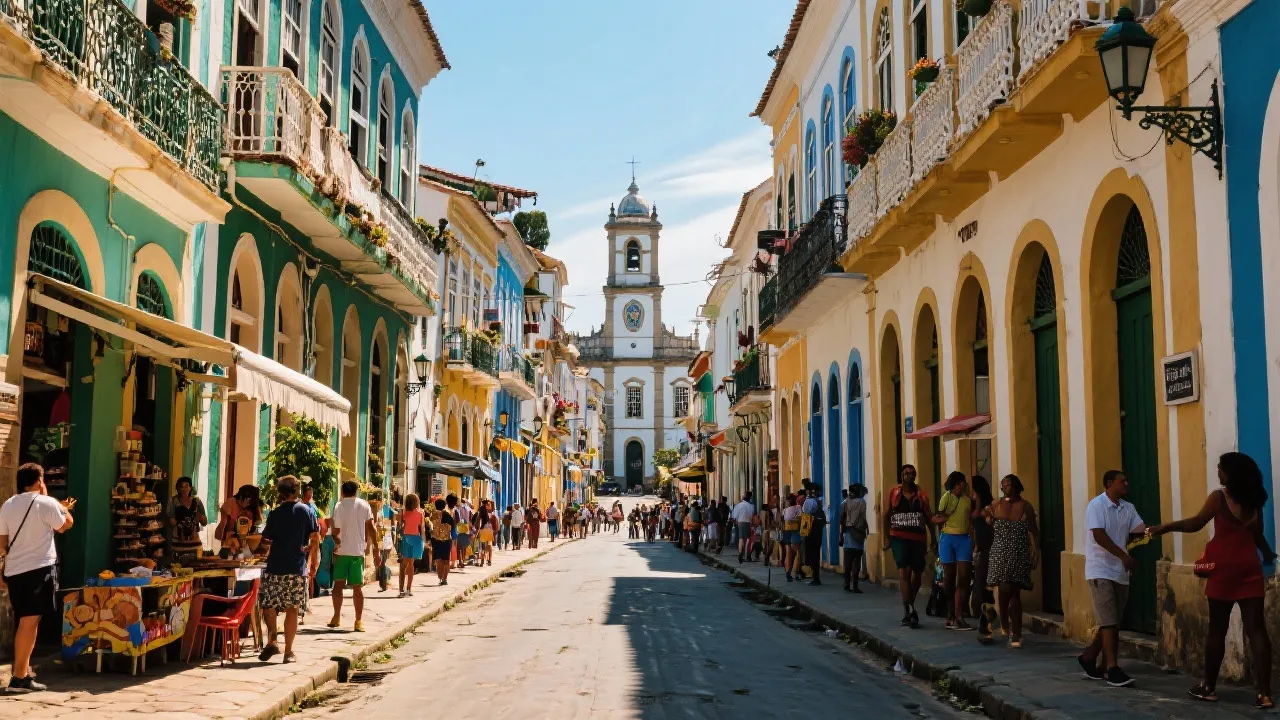
The Enchanting Charm of Salvador
Salvador, the capital of Bahia, is a city bursting with life, offering an unparalleled experience through its dynamic culture and enthusiastic people. Often referred to as “Sorridente Salvador,” this vibrant city is celebrated for the joy and warmth of its residents, making it a truly inviting destination in Brazil. Known for its intricate blend of colonial history, Afro-Brazilian culture, and stunning natural beauty, Salvador captures the imagination of every traveler who visits its shores. From the moment you set foot in this expressive city, you are greeted by the sounds of music, the smell of delicious food, and the welcoming smiles of its people, all contributing to its irresistible charm.
A Historical Overview
Founded in 1549, Salvador is one of the oldest cities in the Americas and played a crucial role in Brazil’s colonial period as the capital for over two centuries. The city became a hub for the importation of African slaves, which has significantly shaped its cultural and social landscape. Today, visitors can stroll through the Historic Center, where the architectural influences of Portuguese colonial rule are prominently displayed. The well-preserved colonial architecture and cobblestone streets tell stories of a bygone era, bringing alive the city’s rich history.
Notably, many historical landmarks can be found here, including the Praça da Sé, which is home to the stunning Cathedral Basilica of Salvador, a fine example of baroque architecture. The splendor of these historical sites serves not only as a journey into Brazil’s past but also as a testament to the resilience of its culture through centuries of change. This complex narrative interweaves the heritage of the indigenous peoples, the influence of European colonizers, and the rich traditions brought by African slaves, forming a unique cultural tapestry that is uniquely Salvadorian.
Cultural Riches and Landmarks
The heartbeat of Salvador’s cultural scene is the Pelourinho, a historic district known for its colorful colonial buildings and lively atmosphere. This UNESCO World Heritage Site hosts numerous cultural events, street performances, and art exhibitions. It's an area that never sleeps, alive with the rhythms of samba and capoeira, where performers demonstrate their skills amid an audience captivated by the spectacle. The district is also home to the Church of São Francisco, renowned for its stunning baroque architecture and intricate gold-leaf interior, which serves as a reminder of the wealth of the church during colonial times.
Pelourinho is not only a cultural epicenter, but it also houses numerous art galleries showcasing local talent and handicrafts. Visitors can find everything from colorful paintings reflecting Bahian life to exquisite handmade jewelry and handicrafts that make for perfect souvenirs. The neighborhood is a canvas, filled with murals that tell the stories of the city’s residents, their struggles, and triumphs, and inviting travelers into a celebration of local creativity. Here, one truly gets a sense of the phrase "Sorridente Salvador" as the people share their history, their art, and their joy with everyone who passes through.
Beaches and Natural Beauty
Beyond its cultural allure, Salvador boasts some of the most breathtaking beaches in Brazil. From the popular Porto da Barra Beach, known for its vibrant sunsets, to the tranquil Itapuã Beach, where relaxation meets natural beauty, there is a spot for every kind of beach lover. The city's coastal areas are a testament to Salvador's natural splendor and offer a serene escape from urban life. The sandy shores are perfect for sunbathing, while clear waters are inviting for swimming or simply enjoying the soothing ocean breeze.
For those seeking adventure, the nearby islands, such as Ilha de Itaparica and Ilha dos Frades, provide opportunities for diving, snorkeling, and exploring unspoiled nature. These islands are just a short boat ride away and offer lush greenery, secluded beaches, and vibrant marine life, making them ideal for a day trip. Additionally, Salvador's beaches are the perfect setting for enjoying traditional beachside meals from local vendors, featuring fresh seafood and tropical fruits that reflect the region’s culinary heritage.
The coastline is further enhanced by lush mangroves and vibrant marine ecosystems, home to unique species and providing stunning views. Outdoor enthusiasts can engage in various water sports or simply enjoy a romantic sunset over the Atlantic Ocean, basking in the natural beauty that surrounds them. Whether you seek action or tranquility, Salvador's beaches offer an invitation to indulge in the best of nature.
Music and Festivals
Music is an integral part of Salvador’s soul, with its sounds echoing through the streets day and night. The city is the birthplace of many musical genres, including Axé and Samba Reggae, both of which have roots in Afro-Brazilian culture. The annual Salvador Carnival is a highlight, drawing millions of visitors to experience its vibrant parades, lively music, and enthusiastic crowds. It’s a time when the spirit of "Sorridente Salvador" shines its brightest, and the atmosphere is electrifying.
Carnival is not only a festival; it is a cultural phenomenon that encapsulates the city’s identity. Street parties known as 'blocos' constitute the heart of the celebration, with massive sound trucks featuring live music leading parades down the streets. Locals and tourists alike participate in the festivities, dancing and singing along to iconic rhythms, creating an immersive experience that is nothing short of magical.
Beyond Carnival, Salvador hosts other significant music festivals throughout the year, such as the Festival of Brazilian Music, which celebrates a variety of genres and showcases emerging talents alongside established artists. Locals frequently gather for informal music sessions in public squares, where you can witness traditional and contemporary performances that highlight the city's rich musical heritage.
For those interested in experiencing the traditional elements of Bahian music, performances of Capoeira, a unique blend of martial arts and dance, are a must-see. This art form reflects the historical struggles of African slaves while showcasing an exhilarating display of movement, rhythm, and community spirit. The vibrant music scene, imbued with joy and energy, resonates throughout Salvador, solidifying its position as a cultural hub.
The Cuisine of Salvador
The culinary scene in Salvador is a reflection of its diverse cultural influences. The local Bahian cuisine is famed for its bold flavors and use of spices, with dishes like acarajé, moqueca, and vatapá taking center stage. These dishes showcase the unique fusion of African and Brazilian ingredients, offering a flavorful journey that delights the senses. Acarajé, a deep-fried ball made of black-eyed peas and filled with spicy shrimp, is not just a dish; it is a cultural symbol that represents the African heritage deeply ingrained in the city.
Moqueca, a traditional fish stew that blends coconut milk, tomatoes, and a variety of seasonings, showcases the coastal bounty and the influence of indigenous cooking practices. Each plate is not only a meal but a story of the land and the people of Salvador, reflecting their traditions and communal lifestyle. Street food is equally significant, with food stalls offering fresh fruits, pastries, and snacks that embrace local flavors and ingredients.
Visitors can take culinary tours to learn about the origins of Bahian cuisine and engage in cooking classes that delve into traditional cooking methods. Markets filled with exotic fruits and spices provide opportunities to experience local ingredients firsthand. Dining in Salvador is an adventure, as many restaurants offer stunning ocean views, creating a perfect backdrop for savoring traditional dishes.
Living the Experience
Travelers visiting Salvador will find a city that embodies warmth and hospitality. The locals, known as "soteropolitanos," are renowned for their friendliness and the genuine smiles that constitute the "Sorridente Salvador" reputation. Visitors are encouraged to partake in local customs, engage with the vibrant community, and immerse themselves in the joyous lifestyle that defines this unique city. Participating in local traditions, such as attending a Candomblé ceremony, allows travelers to gain insight into the Afro-Brazilian spiritual practices that deeply influence the city’s culture.
Salvador’s neighborhoods, each with its own character, invite exploration. From the historical elegance of the Pelourinho to the bustling markets of Liberdade, visitors can enjoy the variety of experiences Salvador has to offer. Craft markets bursting with amazing artwork and textiles provide a glimpse into local life, where artisans display their livelihood. Engaging with these artists not only supports the local economy but also cultivates genuine connections.
The city also features an array of accommodations, varying from luxurious hotels with breathtaking views of the coastline to charming boutique guesthouses that focus on personalized experiences. Lodging options reflect the cultural essence of Salvador, enhancing your stay in the city. For many travelers, the most memorable moments come from spontaneous encounters with locals, laughter shared over delicious meals, or evenings spent enjoying live music under the stars.
| Aspect | Description |
|---|---|
| History | Founded in 1549, was Brazil’s first capital, showcasing a blend of indigenous, African, and European influences. |
| Highlights | Pelourinho, Salvador Carnival, stunning beaches including Porto da Barra and Itapuã. |
| Music | Known for genres like Axé, Samba Reggae, with festivals celebrating local and national talent. |
| Cuisine | Features Bahian specialties including acarajé, moqueca, and an array of tropical fruits. |
| Cultural Influences | Deeply influenced by African traditions, reflected in music, dance, and culinary practices. |
| People | Renowned for their warmth, the "soteropolitanos" embody the spirit of joy and community. |
FAQs
Q: What makes Salvador unique?
A: Salvador’s blend of historical significance, rich cultural diversity, and vibrant festivals make it a truly distinctive city in Brazil. Its unique Afro-Brazilian roots, combined with traditional Portuguese influences, create a captivating cultural landscape.
Q: When is the best time to visit Salvador?
A: The best time to visit Salvador is during its summer months from December to March, especially during the famous Carnival celebrations. However, visiting during the off-peak months offers a different perspective, allowing for a more intimate experience of the city.
Q: What is the main cultural influence in Salvador?
A: Salvador’s culture is predominantly influenced by African traditions, evident in its music, cuisine, and arts, leading to a rich, multifaceted identity that captivates visitors.
Q: What are the must-try dishes in Salvador?
A: Don’t miss sampling acarajé, a favorite street food, as well as moqueca, a spiced fish stew, and vatapá, a savory dish made of bread, shrimp, coconut milk, and nuts. These meals reflect the city’s rich culinary heritage and provide a true taste of Bahia.
Q: Can I participate in local festivals without knowing Portuguese?
A: Yes, while knowing Portuguese can enhance your experience, many locals and festival participants in Salvador are welcoming and accustomed to tourists. Enjoying the atmosphere, dancing, and participating in celebrations do not require fluency in the language.
Q: Are there family-friendly activities in Salvador?
A: Absolutely! Salvador offers numerous family-friendly activities, including visiting its beautiful beaches, exploring cultural and historical sites, and participating in local festivals, ensuring a memorable experience for visitors of all ages.





